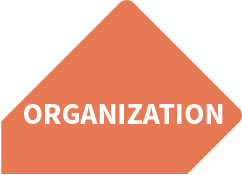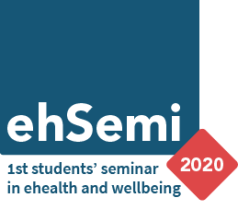
Abstract submission (papers and demos):
October 11, 2019
Extended deadline - October 21, 2019
Notification of acceptance:
November 29, 2019
Camera Ready papers:
December 13, 2019
Seminar Registration until Dec 13-2019:
15€ student | 25€ SC member | 30€ others
Seminar Registration until Jan 10-2019:
25€ student | 35€ SC member | 50€ others
Workshop Registration until Dec 13-2019:
50€ student or SC member registered in ehSemi
70€ student or SC member not registered in ehSemi
70€ others registered in ehSemi
90€ others not registered in ehSemi
Workshop:
January 22-23, 2020
Seminário:
January 24, 2020
SUBMISSIONS
Book of Abstracts ehSemi 2020 - DOWNLOAD
All contributions must be submitted by students (of all degrees) and must be anonymous. This means that all data which may reveal the authors’ identity, namely in the acknowledgments or references section, must be removed. All contributions will be peer reviewed by a panel of experts. Contributions may
be submitted both in Portuguese and English. Accepted contributions will be presented at the seminar in the same language they were submitted. Submissions should be done through EasyChair.
PAPERS
Authors should submit an abstract with a maximum length of 500 words, excluding the references list. In-text citations and the references list should follow APA 6th style. The submission template can be downloaded here.
DEMOS
Authors should submit a description of the work with a maximum length of 250 words and a single page specifying the technical requirements required to run the demo. The submission template can be downloaded here.
The
authors of the selected demos should prepare a poster, using the template provided by the Seminar’s Organization Committee (available soon) and make a live presentation of a prototype / running system on the day of the seminar.
PUBLICATION
The abstracts of the papers and demos presented in the seminar will be published in the seminar proceedings, under an ISBN reference on digital support. A selection of works will be invited to submit an extended version to be published in a special issue of the Journal of Digital Media & Interaction.

The seminar welcomes original contributions in the following themes (and not necessarily limited to):
• Adaptive interfaces, Assistive technologies, Accessibility and Universal design;
• Active and Assisted
living;
• eHealth Inclusion and Literacy;
• Digital media for health communities, Social media-based interventions and Connected health;
• Games and Gamification for Health and Wellbeing;
• Mobile
Health (m-health);
• Sensors, IoT and embodied solutions for Health and Wellbeing;
• Privacy and security issues in e-Health and Wellbeing;
• Health Promotion and Public Health campaigns;
• New
Trends in e-Health and Wellbeing and in New media health.




